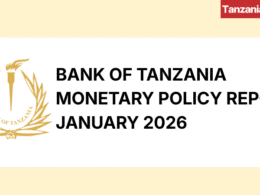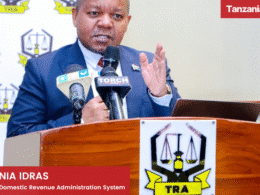The Executive Board of the International Monetary Fund completed the seventh and last review of Tanzania’s economic performance on January 10, 2018, indicating that recent economic performance has been mixed and the outlook is subject to emerging risks.
The IMF explains that although GDP data point to continued strong growth, other high-frequency data suggest a weakening of economic activity.
Tax revenue collections are lower than expected and credit growth has stagnated reflecting in part banks’ rising nonperforming loans (NPLs).
Inflation remains moderate, and international reserves have increased substantially.
There are downside risks to economic growth in the short term stemming from slow budget implementation, a challenging business environment, and private sector concerns about authorities’ enforcement of rules.
This is why the IMF reiterates that the Tanzanian authorities should step up budget implementation, particularly in development spending, and macroeconomic policies will need to be closely coordinated.
Addressing the high stock of NPLs is a priority to reduce financial sector vulnerabilities and revive credit growth.
Infrastructure gaps and the business climate have also become increasingly challenging and require a response.
The IMF has regularly reviewed the Tanzanian economy under its Policy Support Instrument (PSI) program that was approved on July 16, 2014. The program was subsequently extended to January 15, 2018.
Tanzania’s program under the PSI aims at maintaining macroeconomic stability and promoting a more inclusive growth.
It supports the authorities’ objectives on reforms to strengthen public finance management, improve efficiency and transparency of public spending, and move to an interest rate-based monetary policy framework.











